Agriculture is so much more than farming, tractors, and boots on the ground. Did you know that most jobs in agriculture don’t actually involve farming? From rural and regional on and off-farm opportunities to the big smoke, agriculture careers are incredibly varied and diverse!

“Agriculture is not necessarily about being a farmer. Only 18 per cent of jobs in agriculture are on-farm.” Scott Graham, Charles Strut, PhD candidate and Head of Agriculture, Barker College
When you consider careers in agriculture, you probably think of those based on the land first. Like farm manager, soil scientist, horticulturist, etc. We’re going to take a look at that remaining 82 per cent of jobs. Careers that offer a whole lot of opportunity, whatever your interests and skill set. By the way, this is just a taster. Check out our flowchart for more ideas.

Agriculture careers using technology
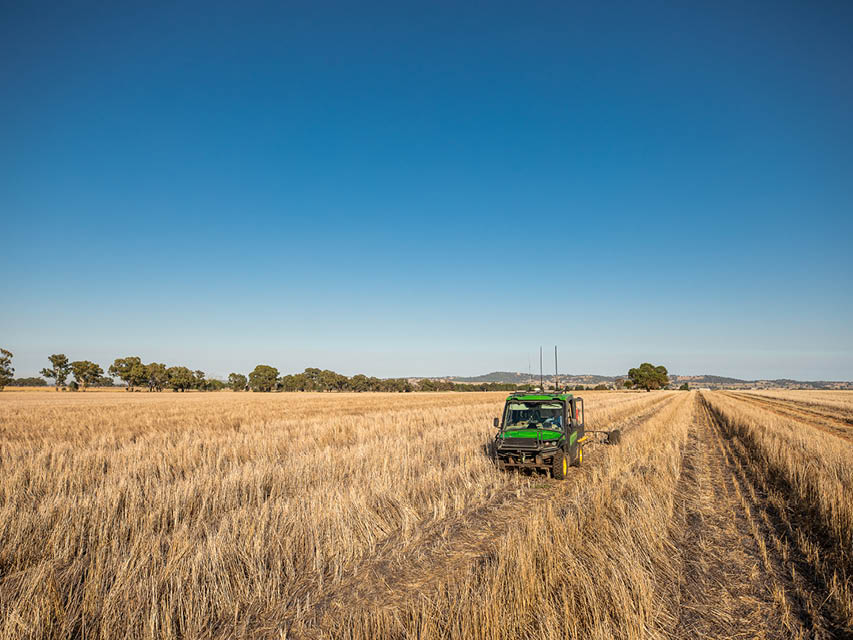
At Charles Sturt our on-campus farm is now digital – with data collection across crops, livestock, weather, water… you name it. That technology is being used to research how to make farming more efficient and sustainable.
Technology is also changing across the whole agricultural supply chain. So if your interests combine food production and the tech side of things, you’ll be able to find your niche.
Here are a few ideas.
Data scientist: You could analyse big datasets, looking at anything from weather satellites and drones, to GPS on cow collars to extract meaningful insights, develop predictive models and optimise farming practices. Data scientists can also use their skills across other parts of the industry. For example, examining transport logistics to ensure products are in the right place at the right time and in the best condition.
Robotics engineer: Design and build automated and robotic systems to make farm operations run more smoothly. That could be anything from self-driving tractors, to seeding machines, weeding robots and crop monitoring systems using sensors and algorithms to ensure the best growing conditions.
Supply chain technologist: You could leverage technologies like blockchain, IoT sensors and data analytics to enhance traceability, transparency and efficiency throughout the food supply chain – from paddock to plate.
Post-production agriculture careers
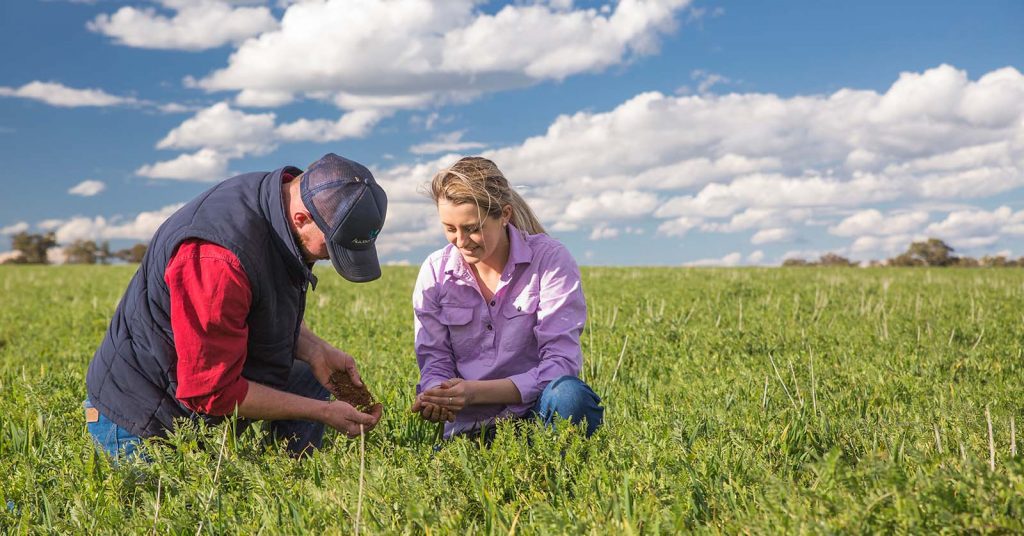
Post-production in agriculture involves jobs that generally occur after the harvesting of crops or the rearing of animals.
Sales and marketing officer: Once food is produced and products from it are manufactured, sales and marketing professionals work to get them in front of consumers. You could devise anything from national ad campaigns to local promotions, combining agricultural knowledge with creative flair.
Consultant: You could use your expertise to advise others on how to improve their products. Whether it’s consulting on crops – looking at ways to boost yield and quality – or advising on market dynamics to ensure a company is targeting their product in the right way. Working as a consultant offers variety and the opportunity to collaborate with different organisations.
Waste and recycling manager: Like most industries, agriculture produces waste. And with sustainability top of mind, dealing with that waste effectively is an increasingly important role in the agricultural ecosystem. From reusing crop offcuts to augment soils, to recycling packaging as part of manufacturing processes, these ‘green’ careers are at the heart of agriculture’s shift towards sustainable practices.
Quality control officer: When it comes to the food we eat, there are regulations around its quality. As there should be. Quality control officers ensure that products meet legal standards. Whether it’s monitoring the welfare of livestock on the farm or testing food products before they are released onto the market, it’s about keeping consumers safe.
Here’s Scott Graham again:
“Many current secondary students… place significant importance on a career path that includes altruistic or humanitarian aspects such as helping others and making a difference in the world. They see the problems the world faces and often far from being despondent. They seek a future of helping solve them. Agriculture is a very attractive career path for these secondary students and the sector would do well to double down through loudly promoting its role in being a significant way to alleviate these big global problems.”
Commercial agriculture jobs
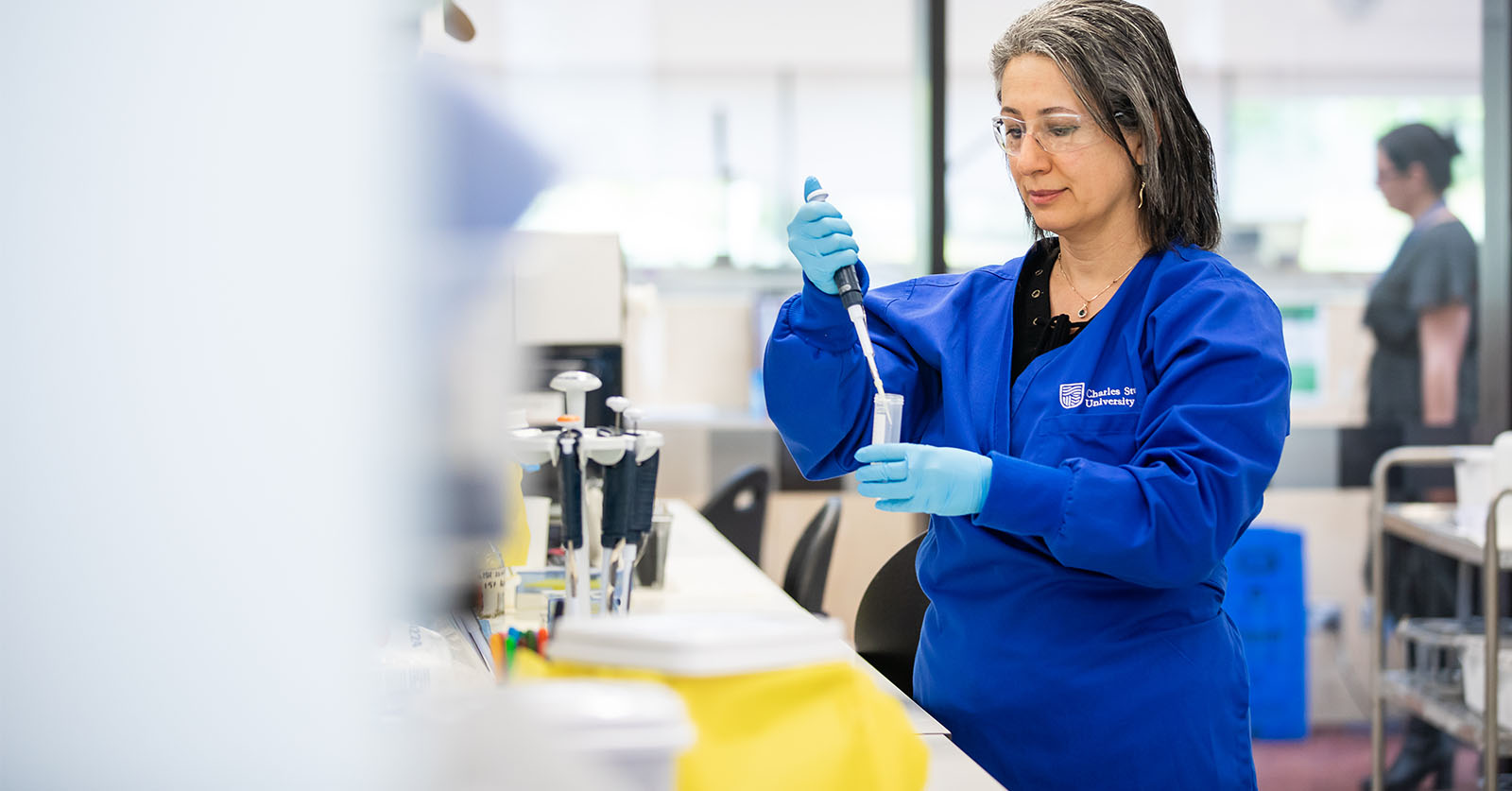
These types of roles add value to agricultural operations. In effect, they are the satellite businesses that interact with and operate around farm operations.
Engineer: Bringing technical and planning know-how to the table, engineers in agriculture can work on anything from designing farm machinery or constructing irrigation and drainage systems to improving the packing and technology in processing plants.
Livestock nutritionist: Livestock nutritionists design diets that meet the specific dietary requirements of different types of animals. They take into account factors such as age, weight, breed, physiological status and environmental conditions. Plus, they analyse the nutritional content of feed ingredients to ensure the animals get the best combination of nutrients for their health and ensure the products that come from them are good for consumption.
Land and insurance agent: Farmers need land. Insurance too. That means they need people to help find, finance, and protect that investment in Terra Firma. Land agents value and analyse available property and advise people on its worth and utility. They also handle the legal side of land transactions. Insurance agents then provide policies that meet the landowner’s needs. This may include crop insurance, livestock and property insurance, or specialised policies tailored to unique agricultural activities, such as installing renewable energy production facilities.
Non-commercial jobs
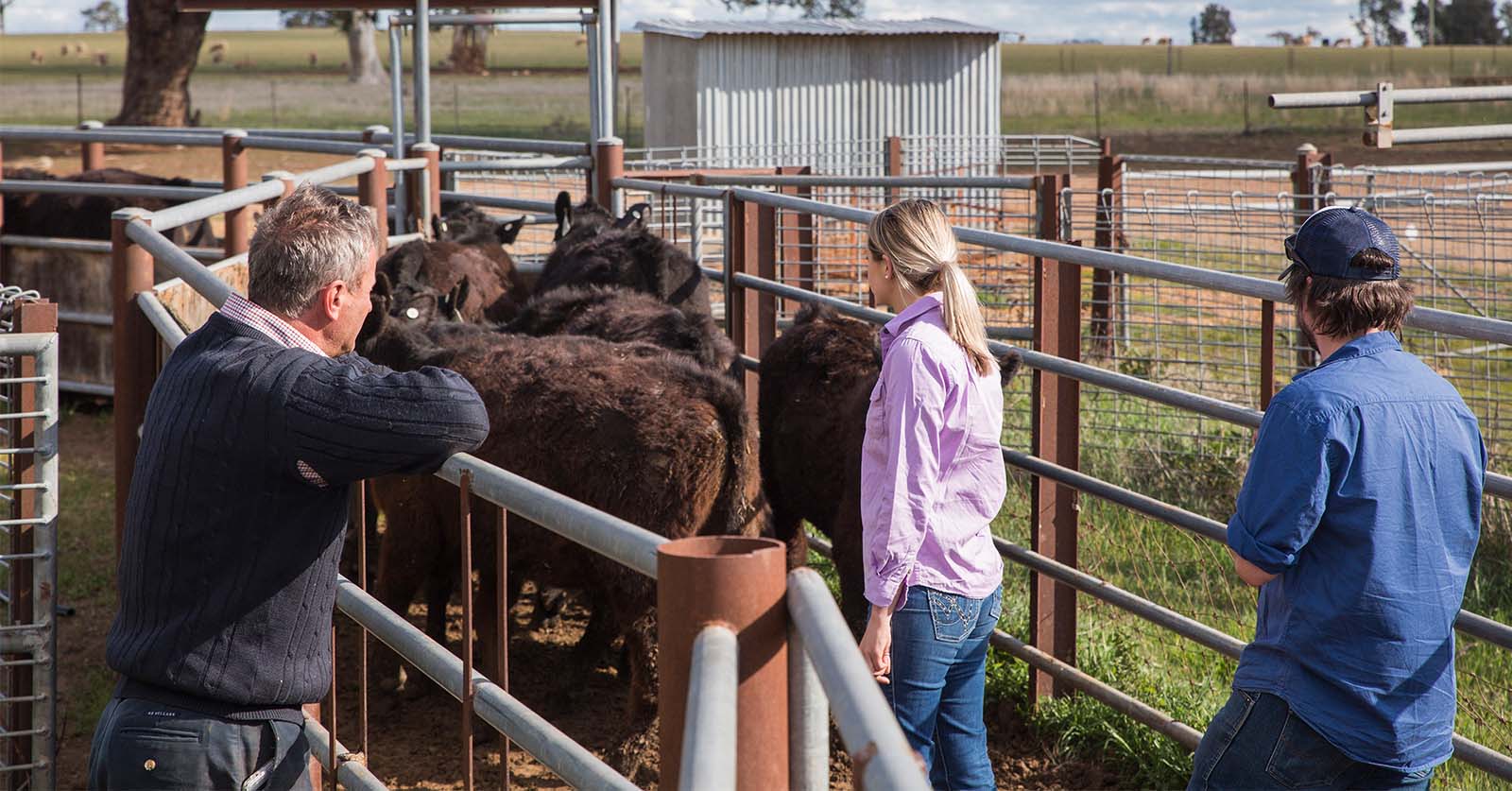
Non-commercial jobs in agriculture are those that are not primarily focused on activities that generate profit (although they can help with that, too).
Policy analyst: These professionals examine existing agricultural policies at local, national, and global levels. This involves studying the implications of these policies on various stakeholders, including farmers, consumers, and the environment. They may also collaborate with government agencies, NGOs, or think tanks to develop new and updated policies and regulations related to various areas, including agricultural technology, sustainability, and food security.
Research scientist: Work at the cutting edge of the industry. As a research scientist, you’ll find new ways of doing things, improving everything from yield and pest management to sustainability. You get to perform experiments, analyse data and draw conclusions that can change the way agriculture works.
Extension officer: This role is all about bridging the gap between agricultural research and farmers. They disseminate agricultural information, provide technical advice and facilitate the adoption of improved agricultural practices among farmers. That could be working on soil carbon capture projects, advising on crop selection and planting schedules, or mobilising community participation in ag activities.
Educator: Share your passion for the agriculture industry with the next generation. Whether working in high schools or universities, agricultural educators provide training in everything from the fundamentals of farming to the latest technological innovations and sustainability initiatives.
Ready to explore agriculture careers?
Know what the first step to securing a career in agriculture is? Getting a qualification. Like our Bachelor of Agriculture.1 It covers the fundamentals of farming, of course, but also introduces you to everything from marketing to microbiology. So you can find areas that ignite your passion – and embark on one of the many rewarding agriculture careers available in this essential industry, wherever you want to work.
Interested in a career as an agribusiness banker, farm manager, market analyst or commodity trader? Grow your agribusiness career with our Bachelor of Agricultural Business Management.2 And prepare for entrepreneurial, management and leadership roles in agriculture.
You could also join a new era of agriculture with our Bachelor of Agricultural Science3. It opens doors to careers in agricultural research science, agronomy and farming systems consultancy. There’s never been a better time to pursue a career in agriculture!


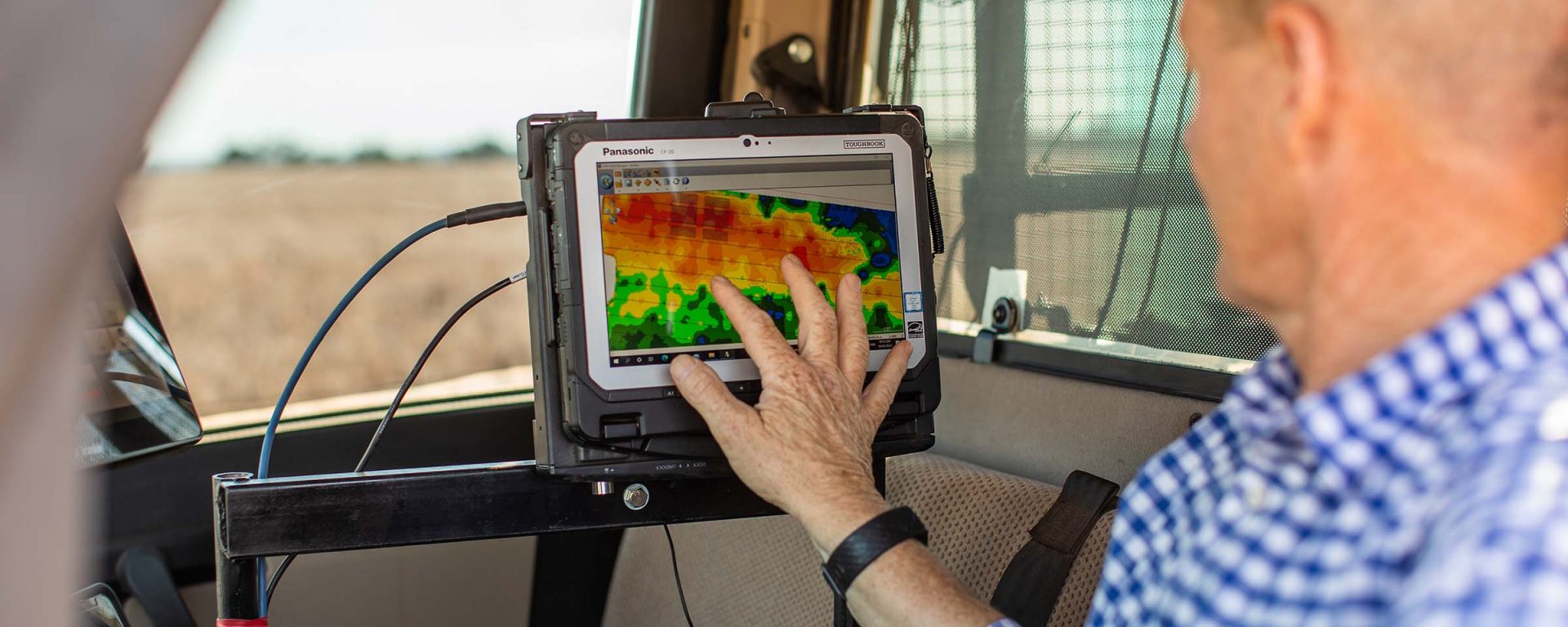
You must be logged in to post a comment.